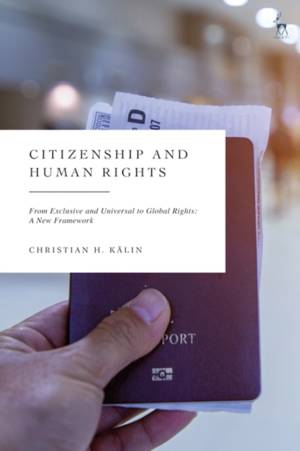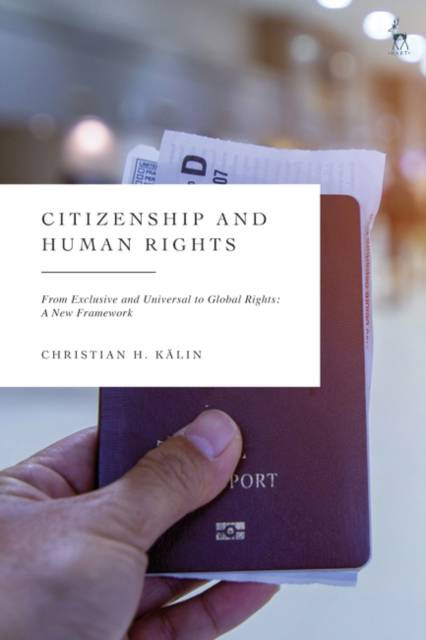
- Afhalen na 1 uur in een winkel met voorraad
- Gratis thuislevering in België vanaf € 30
- Ruim aanbod met 7 miljoen producten
- Afhalen na 1 uur in een winkel met voorraad
- Gratis thuislevering in België vanaf € 30
- Ruim aanbod met 7 miljoen producten
Zoeken
Citizenship and Human Rights
From Exclusive and Universal to Global Rights: A New Framework
Christian Kälin
Hardcover | Engels
€ 220,45
+ 440 punten
Omschrijving
Can universal human rights and different national citizenship regimes ever be compatible? This book argues that they can't, setting out a legal-philosophical critique of the tension between both.
It explores whether the emergence of postnational models of citizenship that aim at decoupling human rights and citizenship succeed in overcoming tensions between the universal (multiculturalism; universal human rights; postnational values) and the particular (citizenship; borders; national values and diverse local narratives). As a result of this exploration, the author argues that it is illegitimate to speak of universal human rights, universal human dignity, or universal social justice. It is only by recognising this reality that much needed transformation of human rights and citizenship can be undertaken in meaningful way.
This provocative and compelling work will appeal to both human rights and citizenship lawyers.
It explores whether the emergence of postnational models of citizenship that aim at decoupling human rights and citizenship succeed in overcoming tensions between the universal (multiculturalism; universal human rights; postnational values) and the particular (citizenship; borders; national values and diverse local narratives). As a result of this exploration, the author argues that it is illegitimate to speak of universal human rights, universal human dignity, or universal social justice. It is only by recognising this reality that much needed transformation of human rights and citizenship can be undertaken in meaningful way.
This provocative and compelling work will appeal to both human rights and citizenship lawyers.
Specificaties
Betrokkenen
- Auteur(s):
- Uitgeverij:
Inhoud
- Aantal bladzijden:
- 320
- Taal:
- Engels
Eigenschappen
- Productcode (EAN):
- 9781509950249
- Verschijningsdatum:
- 8/02/2024
- Uitvoering:
- Hardcover
- Formaat:
- Genaaid
- Afmetingen:
- 156 mm x 234 mm
- Gewicht:
- 625 g

Alleen bij Standaard Boekhandel
+ 440 punten op je klantenkaart van Standaard Boekhandel
Beoordelingen
We publiceren alleen reviews die voldoen aan de voorwaarden voor reviews. Bekijk onze voorwaarden voor reviews.







